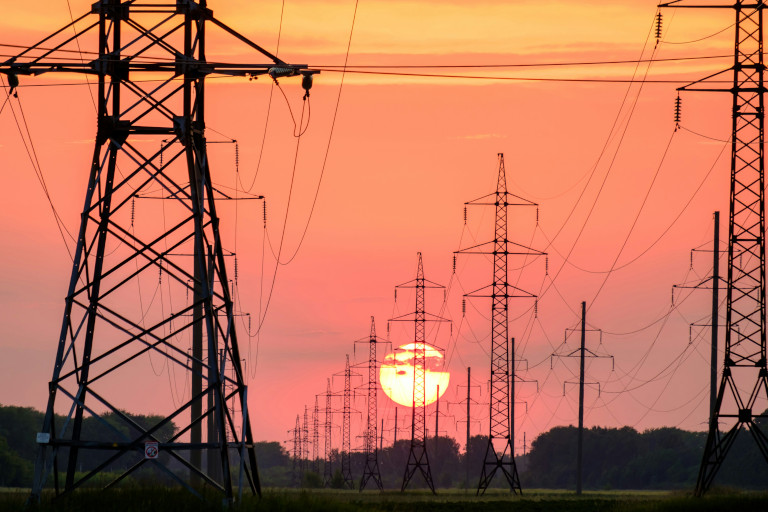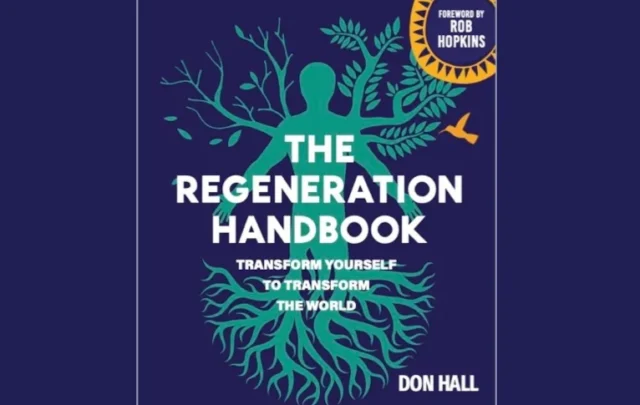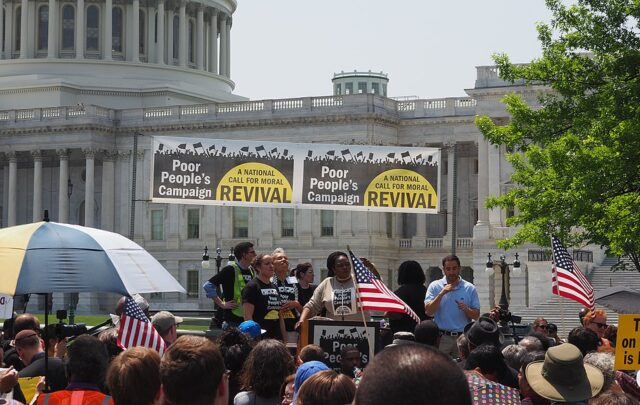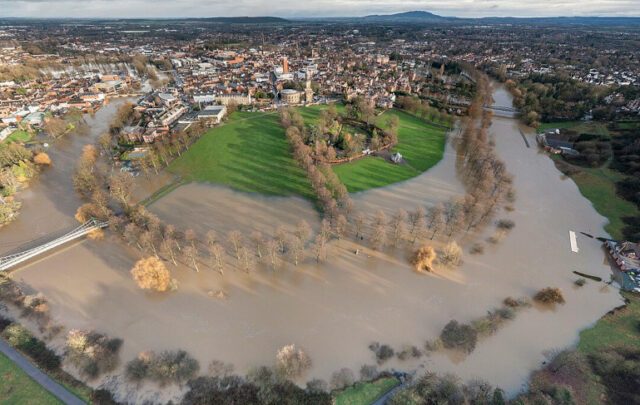Looting, it seems, has got a bad rap. Because to save the planet, we need to loot it. We must let nothing — not cultural artifacts, not ancient woodlands, nor even entire species — get in the way of this drive to save the planet from its number one threat: Climate Breakdown.
This is one of the central points of a editorial by The Economist magazine, titled The Case for an Environmentalism That Builds. It argues that the building of renewable power plants and transmission infrastructure — the greening of the grid — is the only real way to combat climate breakdown.
It is an imperative that should take precedence over just about anything. Whether through massive increases in funding, slashing red tape, and building regardless of social and scientific opposition, the green grid must be built. And importantly, it must continue to expand long after it compensates for the loss of fossil fuel energy.
Via Unsplash.
To say this line of reasoning is controversial would be an understatement. From ecologists to economists, and people who actually work in transmission infrastructure, the editorial has received its fair share of flack. The high-handed lambasting of ‘traditional environmentalism’ feels especially peculiar when the fossil fuel profits (the actual drivers of climate change) are higher than ever.
Whilst it has caused plenty of interest (or ire), the article itself is not very informative, even in broad strokes. After a few stats and figures on the electricity grid, It relies on generalizations and assertions to buoy its argument.
And what is that argument? That we should decarbonise the grid? This is hardly a groundbreaking position, it is rather the (false) claim that environmentalists are the main hindrance to this that has caused such uproar. In fact, the only real point of interest is hidden within its subtext.
Aesthetic Economics
The sheer majesty of a five-megawatt wind turbine, its central support the height of a skyscraper, its airliner-wingspan rotors tilling the sky, is hard to deny. The solid-state remorselessness with which a field of solar panels sucks up sunshine offers less obvious inspiration, but can still stir awe in the aficionado. With the addition of some sheep safely grazing such a sight might even pass for pastoral.
That the editorial should open with a pining, romantic vignette is appropriate. It is fundamentally a discussion of aesthetics, not science or policy.
The Economist’s bold, Promethean attitude towards climate mitigation calls for us to move beyond our sensibilities and do the necessary work, a “call to action”. Sacrifices must be made, and practical — though uncomfortable — steps must be taken. This all sounds good and unobjectionable, and the article is correct in that:
“climate change is a problem of a different magnitude.”
Prometheus, via Unsplash
For such an existential problem, it is also true that we must seriously re-consider our current mode of life, and modify it radically to meet the challenge.
The Economist agrees, claiming it is time we finally broke out of existing sensibilities and made the sacrifices necessary. And what are the sacred cows that the Economist asks us to smash? Endangered seabirds and ancient forests. Correct me if I am wrong, but is this not something we have been doing for already?
Here we come to the crux of the matter. The hour is late, and something radical needs to be done. But the Economist is only content to break sensibilities it does not hold. They are willing to sacrifice everything but that which they personally value (and benefit from). They won’t give up growth, a consumerist economy, or cheap and abundant high-tech amenities.
To give them their due, the editorial does mention it doesn’t think climate change can be beaten without growth, but doesn’t explain why. It claims (erroneously) that the “values central to classical environmentalism” are what is holding us back from tackling climate change, but dismissed out of hand the idea that the system that caused climate change might not be able to solve it.
The imperative to grow might encourage more renewable energy construction, but it also encourages mass extraction and frivolous burning of fossil fuels. The endangered birds and ancient forests will fall either way. In the end, The Economist’s bold call for action is just a meek display of their own inviolable sensibilities.
Via Unsplash.
The call for sacrifice rings hollow. What is the point, or even the purpose, of demanding radical action when even the questioning of existing methods is beyond the pale? Why take aim at environmentalism and planning regulation when the (far more impactful) delaying tactics of oil and gas companies are by now common knowledge?
As Professor Richard Cowell points out, one of the main benefits of environmental planning in projects with ‘wider significance’ is not that it blocks or allows a particular application, but it questions the whole logic of the overarching need. Are electric cars more important than a rare, lithium-rich habitat? Do we need the extra energy capacity this transmission line will provide? Could we not rather cut our consumption and save the material and landscape impact instead? These are questions worth asking, and ones worth working through:
“Instead of creating more efficient and energy-smart systems for things like office flatscreens and private jets, why not just stop using them? It’s usually easier to discard something than cleanly accommodate its massive material and energetic footprint, and at the end of the day, it’s only our transient sensibilities that could ever be harmed.”
Many, socialist and capitalist alike, see such questioning of the Promethean impulse as atavistic ‘crab-mentality’. And this might be true if there were any novelty or heterodoxy to their position. Yet they are holders of a fundamentally conservative worldview, one stuck in the same past models of thinking that got us to this place — a reality the Economist piece ends trying limply to dismiss.
In the satire novel Porterhouse Blue, the character Sir Godber Evans describes his political program as “Alteration without change”. One would struggle to find a more apt motto for the Economists version of environmentalism.





